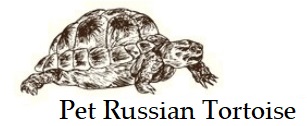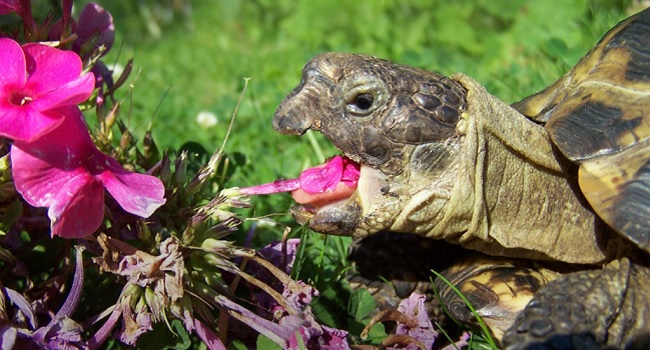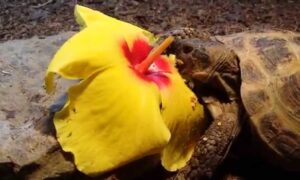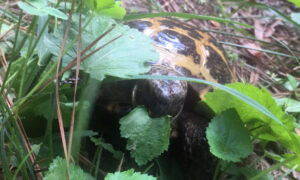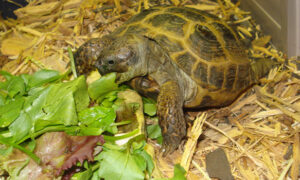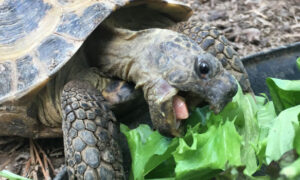Russian tortoises eat flowers as safe and healthy treats. When looking for safe flowers for tortoises, you’ll find a wide variety ranging from roses to hibisicus to pansies. So, when shopping for flowering plants to grow, there’s a wide variety to choose from.
If you have a brown thumb or you don’t have the space to grow flowers for your tortoise, you can offer dried flowers. Top your Russian tortoise’s pellets or favorite dish with dried flower petals.
Growing Flowers for Russian Tortoises
Make sure that when you buy plants, you buy organic plants free of pesticides and herbicides. If you’re not sure, it’s best to treat all plants as though they are contaminated.
When you plant the flowers, keep your tortoise away from them for at least six months or more for the chemicals to outgrow the plant.
Safe Flowers for Tortoises
Your Russian tortoise can eat flowers. When landscaping an outdoor enclosure or foraging for edible flowers, check out this list of safe flowers for tortoises.
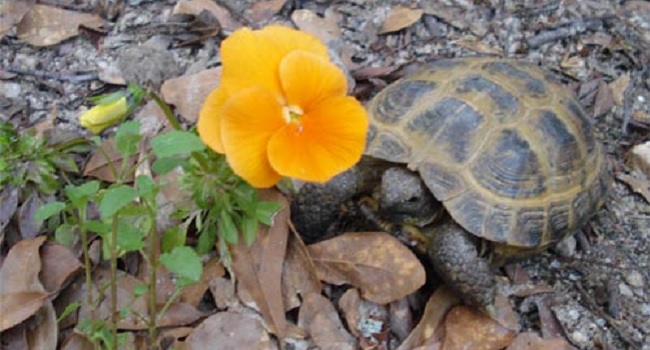
- Aubretia
- Begonias
- Bluedicks
- Bugleweed
- California Poppy
- Calendula
- Chamomile
- Chinese lantern
- Chrysanthemum
- Cornflower or Bachelor’s Buttons
- Creeping Bell
- Day Lilies
- Desert Honeysuckle
- English Daisy
- Evening primrose
- Gazania
- Geranium
- German chamomile
- Globemallow
- Hibiscus
- Hylotelephium spectabile
- Hosta
- Mallow flowers (and leaves)
- Marigold
- Moon Flower
- Nasturtium
- Pansy
- Petunia
- Roses
- Sweet Alyssum
- Sweet Woodruff
- Tagetes
- Tickseed (Corepsis)
- Violets
- Wallflowers (erysimum annual & biennial varieties)
- Welsh Poppy
- Wisteria
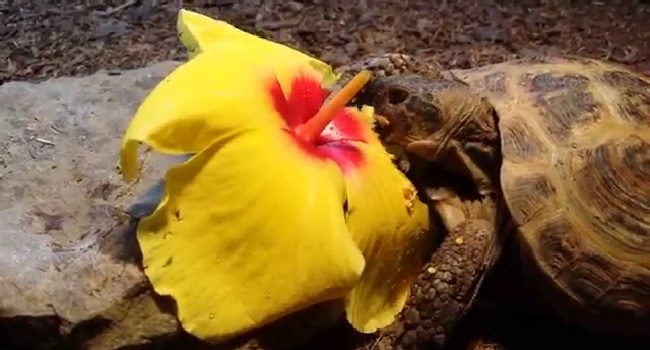
Toxic Flowers for Tortoises
Just like there are safe flowers for Russian tortoises to eat, there are flowers you should avoid feeding or letting your tortoise eat. The good thing is a nibble or two will be fine, as small amounts aren’t necessarily fatal, but you want to avoid these flowering plants near your Russian tortoise.
- Azalea
- Buttercup
- Calla lily
- Daffodil
- Delphinium
- Euphorbias
- Four o’clock
- Foxglove
- Gloriosa lily
- Hellebores
- Hydrangea
- Hypericum (often called Rose of Sharon, not to be confused with Hibiscus)
- Iris
- Lilies
- Lily of the valley
- Marsh marigold
- Morning glory
- Narciusis
- Oleander
- Rhododendrons
- Trumpet flower (chalice vine)
Avoid any flowering plants that have a bulb or grow from tublers or korma..
